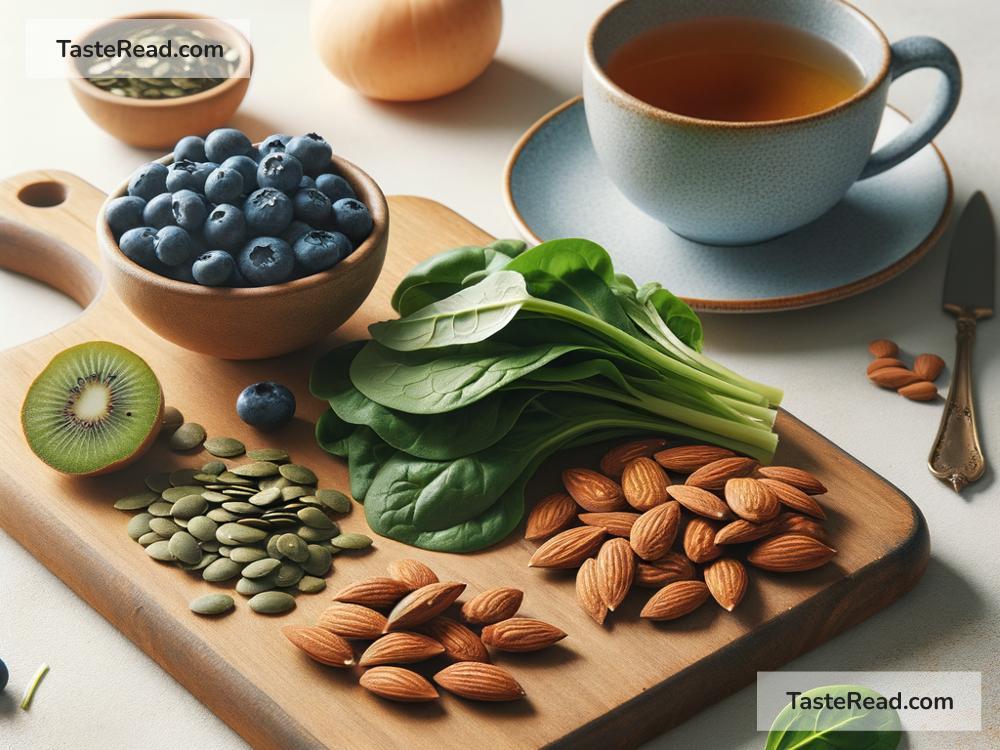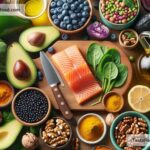Foods That Help Reduce Listening Barriers: Simple Steps to Better Understanding
Listening is one of the most essential skills we use every day. Whether we’re chatting with friends, attending meetings, or learning something new, good listening helps us stay connected and informed. But sometimes, certain barriers can make it hard to truly hear and understand what others are telling us. Stress, fatigue, poor mental focus, and even physical health can impact how well we listen.
Did you know that the food you eat can play a role in improving your listening skills? A healthy diet can support brain function, focus, and energy—helping you overcome those pesky listening barriers. In this blog, we’ll explore foods that boost brain health, combat fatigue, and improve concentration. The good news? They’re delicious, easy to find, and simple to add to your meals!
Why Do Listening Barriers Happen?
Before diving into the foods, let’s briefly discuss what listening barriers are. Listening barriers are obstacles that stop us from fully understanding or engaging with what someone is saying. Common examples include:
- Mental distractions (daydreaming or worrying)
- Fatigue (feeling tired or sleepy)
- Stress or anxiety (which makes it hard to focus)
- Low energy levels (affecting attention span)
- Physical health issues (like poor hearing or headaches)
While lifestyle habits like sleep, exercise, and mindfulness play a big role in reducing listening barriers, your diet is also a powerful tool for keeping your mind sharp.
Foods That Boost Focus and Reduce Listening Barriers
Here are some brain-boosting foods to help you stay alert, focused, and ready to truly listen.
1. Omega-3 Rich Foods: Good for Brain Health
Omega-3 fatty acids are essential fats that improve brain function and reduce mental fatigue. Eating foods rich in omega-3 can make your mind sharper and help you stay focused when listening.
Best options:
– Fatty fish like salmon, mackerel, and tuna
– Chia seeds and flaxseeds
– Walnuts
Try adding salmon to your lunch or sprinkling chia seeds into your yogurt or smoothie for a brain boost.
2. Leafy Greens: Full of Brain-Friendly Nutrients
Leafy greens like spinach, kale, and broccoli are packed with vitamins (like Vitamin K and folate) that support cognitive function. They also contain antioxidants that protect your brain from stress and fatigue.
Best options:
– Spinach
– Kale
– Broccoli
– Swiss chard
Make a salad with spinach and kale or sauté some broccoli as a quick side dish for your meal.
3. Whole Grains: Energy for Your Mind
Listening requires mental energy, and whole grains are a great source of long-lasting fuel. Foods like oatmeal, quinoa, and brown rice keep your blood sugar steady, helping you stay alert and attentive for longer periods.
Best options:
– Oats (think oatmeal or overnight oats)
– Quinoa
– Whole-grain bread or crackers
Swap refined carbs like white bread for whole-grain options to support better focus throughout the day.
4. Berries: Boost Your Memory
Berries like blueberries, strawberries, and blackberries are small but mighty! They contain antioxidants that improve memory, support brain health, and reduce stress—making it easier to listen actively and process information.
Best options:
– Blueberries
– Strawberries
– Raspberries
Snack on fresh berries, toss them into a smoothie, or use them to top your yogurt or oatmeal.
5. Nuts and Seeds: Concentration Boosters
Nuts and seeds are full of healthy fats, protein, and key nutrients like Vitamin E. These snacks help improve mental clarity and keep your brain focused during conversations or presentations.
Best options:
– Almonds
– Cashews
– Sunflower seeds
– Pumpkin seeds
Keep a small bag of mixed nuts with you for a quick energy boost when needed.
6. Dark Chocolate: Treat Your Brain
Yes, chocolate can be good for you! Dark chocolate contains flavonoids that improve blood flow to the brain and enhance focus. Plus, it can reduce stress, making it easier to stay calm and listen mindfully.
Best options:
– Look for dark chocolate with at least 70% cocoa for maximum benefits.
Enjoy a square of dark chocolate as an afternoon pick-me-up or sprinkle cocoa powder into your smoothie.
7. Water: Stay Hydrated for Better Focus
Sometimes, the simplest solution is the most effective. Dehydration can lead to fatigue and poor concentration, which makes listening harder. Keep sipping water throughout the day to stay alert and energized.
Tip: Add lemon or cucumber slices to your water for a refreshing twist!
Simple Tips to Boost Listening Through Food
Want to make these foods a consistent part of your life? Here are easy ways to incorporate them into your daily meals:
-
Start with Breakfast: A bowl of oatmeal topped with berries and walnuts gives your brain the perfect morning boost.
-
Pack Snacks: Carry nuts, seeds, or dark chocolate in your bag for quick energy when you’re on the go.
-
Add Greens to Your Meals: Toss spinach into your omelet or blend kale into a smoothie.
-
Experiment with Fish: Try grilled salmon or tuna sandwiches for lunch or dinner.
-
Stay Hydrated: Set reminders to drink water throughout the day to keep your energy levels steady.
Conclusion
Listening is about more than just hearing words—it’s about engaging with others and understanding their message. By choosing foods that fuel your brain and body, you can overcome common listening barriers like fatigue and mental distractions. Omega-3s, leafy greens, whole grains, berries, nuts, and dark chocolate all work together to improve focus, memory, and mental health. Plus, staying hydrated helps you maintain energy and clarity throughout the day.
Start adding these foods to your diet, and you’ll notice the difference—not just in your listening skills, but in your overall energy and well-being. Eating for better listening is simple, delicious, and totally worth it!


